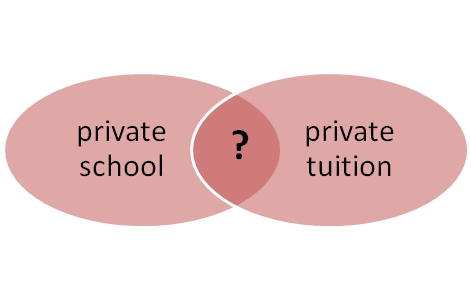
In July this year, the Social Market Foundation published a report which found that adults who attended private school will have earned around £200,000 more than their state educated peers before they hit their mid-forties. A follow-up article in the Telegraph then asked whether it’s better for parents to spend on school fees or on private tuition.
Considering that parents will sometimes invest £100,000s in a private school education for their offspring, the financial pay off of such an education may not seem that great. But parents of course know that a good education is about much more than an increase in salary, and it is still a stark fact that a disproportiate number of privately educated individuals make it to the top of their professions (consider, for example, the background of most UK senior judges).
When it comes to comparing the outcomes of private school with private tuition, however, there are no statistics available. After all, what kind of tutoring are we talking about? The experience and cost of a home schooled child engaging in an extensive programme of private lessons will be very different to (for example) a state school pupil having remedial tuition once a week.
Perhaps the most surprising statistic just made available is that it is children who already attend private school who are the most likely to receive private tuition. This has been noted anedotally by tutors before, but we now have the evidence for it in a new report by the Sutton Trust entitled Extra-Curricular Inequality. This report for the first time collates data on the extent to which parents from different socio-economic backgrounds will afford both academic private tuition and other extra-curricular activities for their children such as music, dance and sport.
Therefore, the lengths to which parents will go to secure good educational outcomes for their offspring is now becoming clear: for some, the choice is no longer private school or private tuition, but both.

Warning: Declaration of Social_Walker_Comment::start_lvl(&$output, $depth, $args) should be compatible with Walker_Comment::start_lvl(&$output, $depth = 0, $args = Array) in /var/www/vhosts/thetutorblog.com/httpdocs/wp-content/plugins/social/lib/social/walker/comment.php on line 18
Warning: Declaration of Social_Walker_Comment::end_lvl(&$output, $depth, $args) should be compatible with Walker_Comment::end_lvl(&$output, $depth = 0, $args = Array) in /var/www/vhosts/thetutorblog.com/httpdocs/wp-content/plugins/social/lib/social/walker/comment.php on line 42
Private School, or Private Tuition? | The Tutor Blog http://t.co/Z3SyfHAYwZ via @thetutorpages